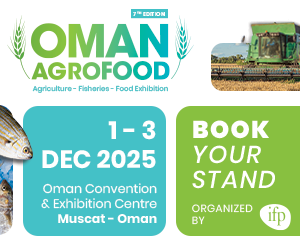A new report from Bain & Company and the World Economic Forum (WEF) estimates that achieving sustainable and resilient global food systems aligned with the Paris Agreement will demand approximately $1.1 trillion in annual investment over the next five years. This funding would also drive job creation and strengthen food security worldwide.
At present, however, only about 5% of this annual requirement is being invested, resulting in a substantial financing shortfall. The report emphasizes that closing this gap will rely on innovative financing mechanisms capable of attracting a wider array of investors.
Funding Imbalances Threaten Food Security and Global Equity
Currently, most private capital targeting food system improvements is concentrated in Europe and North America. Meanwhile, the regions most in need—Asia Pacific, Africa, and Latin America—receive far less investment. This imbalance not only undermines progress toward equitable development but also jeopardizes long-term food security and climate adaptation efforts.
“Transforming food systems isn’t just critical for the climate—it’s also a commercial opportunity. Financial institutions that are exposed to the food sector have clear incentives to strengthen their clients’ creditworthiness,” explained Iwona Steclik, partner in Bain & Company’s Financial Services practice in EMEA. “Moreover, investing in food systems helps financiers comply with increasingly rigorous sustainability regulations and fulfill key commitments to stakeholders.”
Real-World Models Offer Scalable Solutions
The report highlights several promising initiatives that blend different types of funding to deliver tangible impact, including:
Aceli Africa, which supports loans to small and medium-sized agribusinesses
Project Acorn, a carbon removal program centered on farmers
McCain Foods’ regenerative agriculture project, which integrates sustainability throughout supply chains
The Innovative Finance for the Amazon, Cerrado and Chaco (IFACC) platform, which combines public, philanthropic, and commercial capital to protect ecosystems while supporting agriculture
“A common thread among these efforts is the need for coordinated action spanning the entire value chain—from farmers and agrifood firms to retailers, financial institutions, technology providers, and governments,” said Derek Baraldi, Head of Sustainable Finance at WEF. “These models rely on de-risking approaches that range from traditional tools like guarantees to newer strategies, such as monetizing ecosystem services.”
“Transforming food systems unlocks significant investment opportunities,” added Christian Graf, a Bain & Company partner who leads the EMEA Sustainability & Responsibility Financial Services practice. “Commercial investors can access new markets, grow revenues, and enhance portfolio resilience. But to scale these investments effectively, institutions must adopt tailored strategies that reflect their unique capabilities, risk appetite, and sustainability objectives.”
Source: Economy Middle East



















































































